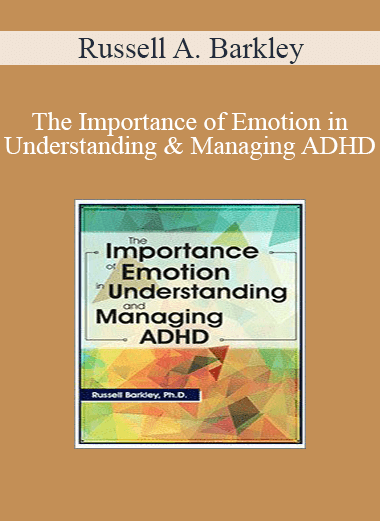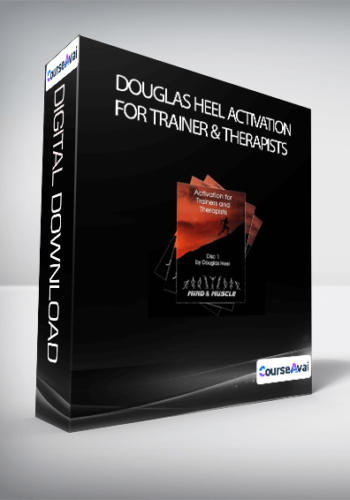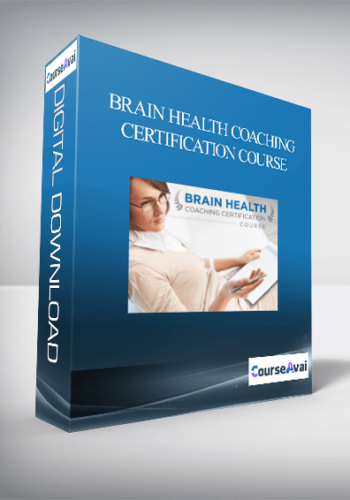Russell A. Barkley – The Importance of Emotion in Understanding and Managing ADHD
$59.99 Original price was: $59.99.$11.70Current price is: $11.70.
[Instant Download] – Immediately deliver the download link after receiving the payment
Description
Unlock your potential with the Unlock your potential with the Russell A. Barkley – The Importance of Emotion in Understanding and Managing ADHDRussell A. Barkley – The Importance of Emotion in Understanding and Managing ADHD course for only course for only $$59.9959.99 Original price was: $59.99.Original price was: $59.99.$$11.7011.70Current price is: $11.70.Current price is: $11.70. at at Giolib.comGiolib.com! Explore our comprehensive library of over 60,000 downloadable digital courses across various ! Explore our comprehensive library of over 60,000 downloadable digital courses across various Medical & HealthMedical & Health. Get expert-led, self-paced learning at up to 80% savings. Elevate your skills today!. Get expert-led, self-paced learning at up to 80% savings. Elevate your skills today!
- Faculty:Faculty:
- Russell A. BarkleyRussell A. Barkley
- Duration:Duration:
- 1 Hour 29 Minutes1 Hour 29 Minutes
- Format:Format:
- Audio and VideoAudio and Video
- Copyright:Copyright:
- Sep 13, 2012Sep 13, 2012
Description
This presentation reviews the evidence from the history, neuropsychology, neuro-anatomy, and observational research that shows that emotional impulsiveness and deficient emotional self-regulation are an integral part of ADHD. Returning emotion to its rightful place as a core feature of the disorder also serves to better explain the development of comorbid disorders, such as oppositional defiant disorder, and well as various life course impairments. Dr. Barkley, internationally recognized authority on ADHD, will discuss how to determine which aspects of emotional adjustment problems in ADHD cases are the result of the disorder and which are likely to be the consequence of comorbidity or other life course circumstances. He will also address the implications of including emotion in ADHD for its management.This presentation reviews the evidence from the history, neuropsychology, neuro-anatomy, and observational research that shows that emotional impulsiveness and deficient emotional self-regulation are an integral part of ADHD. Returning emotion to its rightful place as a core feature of the disorder also serves to better explain the development of comorbid disorders, such as oppositional defiant disorder, and well as various life course impairments. Dr. Barkley, internationally recognized authority on ADHD, will discuss how to determine which aspects of emotional adjustment problems in ADHD cases are the result of the disorder and which are likely to be the consequence of comorbidity or other life course circumstances. He will also address the implications of including emotion in ADHD for its management.
Handouts
| Manual – Understanding Emotion in ADHD (906.5 KB) Manual – Understanding Emotion in ADHD (906.5 KB) | 18 Pages18 Pages | Available after Purchase Available after Purchase |
Outline
Current View of ADHDCurrent View of ADHD
History of Involvement of Emotion in ADHDHistory of Involvement of Emotion in ADHD
- Poor Emotion Regulation is in ADHD back to 1775Poor Emotion Regulation is in ADHD back to 1775
- DSM-II Eliminates Emotional Dysregulation from ADHDDSM-II Eliminates Emotional Dysregulation from ADHD
Neuro-anatomy of ADHD Neuro-anatomy of ADHD
- Disturbances to Anterior Cingulate CortexDisturbances to Anterior Cingulate Cortex
Neuropsychology of ADHD Neuropsychology of ADHD
- Involvement of “Hot” Emotional Executive CircuitsInvolvement of “Hot” Emotional Executive Circuits
Review of Psychological Evidence Review of Psychological Evidence
- Emotional Impulsiveness Emotional Impulsiveness
- Poor Self-Regulation of EmotionPoor Self-Regulation of Emotion
Unique Contribution of Emotional Impulsiveness to ImpairmentsUnique Contribution of Emotional Impulsiveness to Impairments
Role of Emotional Impulsiveness Role of Emotional Impulsiveness
- Risk for Comorbid Oppositional Defiant DisorderRisk for Comorbid Oppositional Defiant Disorder
Implications of Emotional Dysregulation for DiagnosisImplications of Emotional Dysregulation for Diagnosis
Implications of Poor Emotional Self-Regulation for TreatmentImplications of Poor Emotional Self-Regulation for Treatment
Faculty

Russell A. Barkley, Ph.D. Related seminars and products: 14
Russell A. Barkley, Ph.D.Russell A. Barkley, Ph.D., is a Clinical Professor of Psychiatry at the Virginia Treatment Center for Children and Virginia Commonwealth University Medical Center, Richmond, VA. He is a Diplomate (board certified) in three specialties, Clinical Psychology (ABPP), Clinical Child and Adolescent Psychology, and Clinical Neuropsychology (ABCN, ABPP). Dr. Barkley is a clinical scientist, educator, and practitioner who has published 23 books, rating scales, and clinical manuals numbering 41 editions. He has also published more than 270 scientific articles and book chapters related to the nature, assessment, and treatment of ADHD and related disorders and is the author of the book , is a Clinical Professor of Psychiatry at the Virginia Treatment Center for Children and Virginia Commonwealth University Medical Center, Richmond, VA. He is a Diplomate (board certified) in three specialties, Clinical Psychology (ABPP), Clinical Child and Adolescent Psychology, and Clinical Neuropsychology (ABCN, ABPP). Dr. Barkley is a clinical scientist, educator, and practitioner who has published 23 books, rating scales, and clinical manuals numbering 41 editions. He has also published more than 270 scientific articles and book chapters related to the nature, assessment, and treatment of ADHD and related disorders and is the author of the book Managing ADHD in SchoolManaging ADHD in School (PESI, 2016). (PESI, 2016).
He is the founder and editor of the bimonthly clinical newsletter, He is the founder and editor of the bimonthly clinical newsletter, The ADHD ReportThe ADHD Report, now in its 25, now in its 25thth year of publication. Dr. Barkley has presented more than 800 invited addresses internationally and appeared on nationally televised programs such as year of publication. Dr. Barkley has presented more than 800 invited addresses internationally and appeared on nationally televised programs such as 60 Minutes, the Today Show, Good Morning America, CBS Sunday Morning, CNN60 Minutes, the Today Show, Good Morning America, CBS Sunday Morning, CNN, and many other programs on behalf of those with ADHD. He has received awards from the professional societies and ADHD organizations for his lifetime achievements, career accomplishments, contributions to research in ADHD, to clinical practice, and for the dissemination of science. His websites are , and many other programs on behalf of those with ADHD. He has received awards from the professional societies and ADHD organizations for his lifetime achievements, career accomplishments, contributions to research in ADHD, to clinical practice, and for the dissemination of science. His websites are russellbarkley.org and ADHDLectures.com.
Speaker Disclosures: Speaker Disclosures:
Financial: Dr. Russell Barkley is employed by the Medical University of South Carolina. He is on the speaker’s bureau for Eli Lilly and receives compensation. He has an advisory board relationship with Theravance and receives compensation. He is an author for Guilford Press and receives royalties. He is an author for Jones and Bartlett Publishers and receives royalties. He is a speaker for J&K Seminar and receives royalties. He is a speaker for PsychContinuingEd.com and receives royalties. He is a speaker for ContinuingEdCourse.com and receives royalties. He is a speaker who receives an honorarium for PESI, Inc. Financial: Dr. Russell Barkley is employed by the Medical University of South Carolina. He is on the speaker’s bureau for Eli Lilly and receives compensation. He has an advisory board relationship with Theravance and receives compensation. He is an author for Guilford Press and receives royalties. He is an author for Jones and Bartlett Publishers and receives royalties. He is a speaker for J&K Seminar and receives royalties. He is a speaker for PsychContinuingEd.com and receives royalties. He is a speaker for ContinuingEdCourse.com and receives royalties. He is a speaker who receives an honorarium for PESI, Inc.
Non-Financial: Dr. Russell Barkley has no relevant non-financial relationship to disclose.Non-Financial: Dr. Russell Barkley has no relevant non-financial relationship to disclose.
Future-proof your knowledge with the Future-proof your knowledge with the Russell A. Barkley – The Importance of Emotion in Understanding and Managing ADHDRussell A. Barkley – The Importance of Emotion in Understanding and Managing ADHD course at course at GiOlibGiOlib! Enjoy lifetime access to high-quality digital content, crafted to advance your career and personal development.! Enjoy lifetime access to high-quality digital content, crafted to advance your career and personal development.
- Lifetime Access:Lifetime Access: Permanent access to all purchased courses. Permanent access to all purchased courses.
- Smart Savings:Smart Savings: Benefit from prices up to 80% off original course costs. Benefit from prices up to 80% off original course costs.
- Safe Transactions:Safe Transactions: Process your payments securely. Process your payments securely.
- Practical Insights:Practical Insights: Gain actionable skills relevant to today's demands. Gain actionable skills relevant to today's demands.
- Instant Availability:Instant Availability: Begin your course immediately after payment. Begin your course immediately after payment.
- Flexible Learning:Flexible Learning: Access content effortlessly on any device. Access content effortlessly on any device.
Start expanding your horizons with Start expanding your horizons with GiOlibGiOlib!!
Related products
-
Sale
Douglas Heel Activation for Trainer & Therapists
$250.00Original price was: $250.00.$38.70Current price is: $38.70. -
Sale
Bob Proctor – Living the Legacy
$1,995.00Original price was: $1,995.00.$209.70Current price is: $209.70. -
Sale
Kim Anami – Sexual Mastery for Men
$547.00Original price was: $547.00.$59.40Current price is: $59.40. -
Sale
Brain Health Coaching Certification Course
$997.00Original price was: $997.00.$127.80Current price is: $127.80. -
Sale
Fitness Business Summit 2016
$177.00Original price was: $177.00.$37.80Current price is: $37.80.





